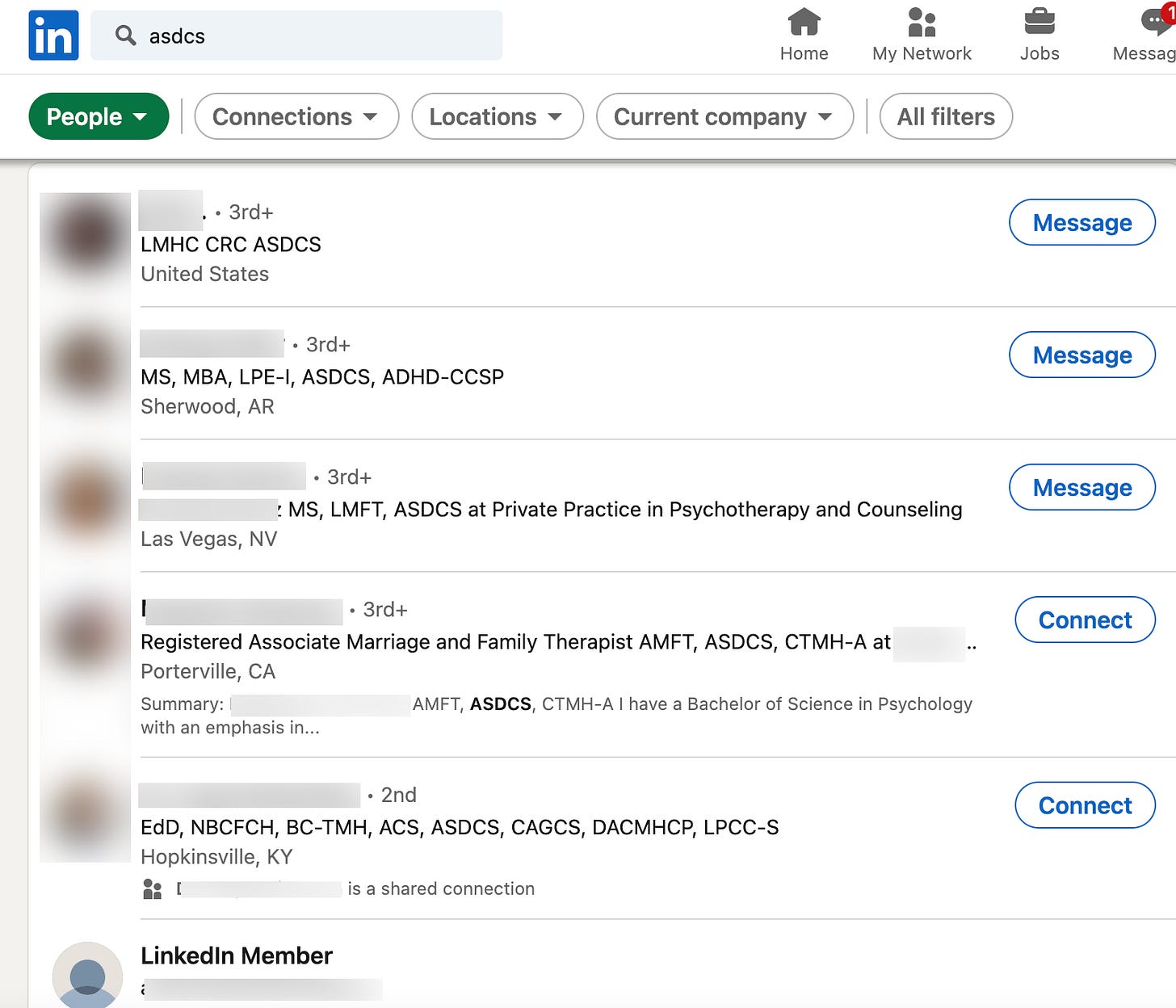Certified Autism Spectrum Disorder Clinical Specialist? Really?
You too can be a ASDCS for only $99.
The picture above is real. This flyer was waiting for me in my mailbox. It’s a real flyer. For only $99 (using the special code), you too can become a Certified Autism Spectrum Disorder Clinical Specialist (ASDCS).
According to the web site, “This intensive online autism certification training provides the education you need to confidently and competently offer safe, effective transformational strengths-based interventions, strategies, and approaches to support your clients regardless of age or developmental stage! Completely online and self-paced, you can view this comprehensive certification training whenever and wherever the time is right for you. Once you complete this training, you'll immediately qualify to become a Certified Autism Spectrum Disorder Clinical Specialist (ASDCS) — at no additional cost to you! That’s right, in just three easy steps, you can become an ASDCS (a $249.99 value)!”
Before you get too excited and head over to the website to become a certified specialist, I want to call your attention to this recent paper:
Rosen, G. M., Washburn, J. J., & Lilienfeld, S. O. (2020). Specialty certifications for mental health practitioners: A cautionary case study. Professional Psychology: Research and Practice. Retrieved from: https://psycnet.apa.org/record/2020-35286-001
Abstract: Mental health professionals typically represent their competencies by earning a diploma and obtaining a state license to practice. Some practitioners choose to further represent their expertise by acquiring specialty certifications. We review the broader landscape of these certifications and provide a case study of a program that illustrates current problems with specialty certifications. Specifically, we demonstrate that an 8th grader with no prior mental health education or training can pass a test intended to assess expert levels of knowledge obtained from a workshop. Implications of these findings on the validity of specialty credentials and the public's trust in them are considered.
Indeed, a quick Google search finds that the company described in the piece is indeed connected to the company who sent the flyer to me.
Think about it. If the person assessing you or your loved one is claiming to be a Certified Autism Spectrum Disorder Clinical Specialist (ASDCS), would knowing that an 8th grader with no prior mental health education could also acquire that specialist credential colour your opinion of the advice such a specialist provides.
“Trust me, I’m an ASDCS. I’m certified.” - Really? A $99 certificate program qualifies one to work with such a vulnerable population?
Why, you might ask, would someone go to such a program? LinkedIn.
If you’ve ever been on LinkedIn, it’s like alphabet soup. There are folks who seem to collect these certificates, then broadcast them on their tag line to make it seem as though their more qualified than those of us who don’t have the string of characters after our name. This is essentially a marketing gimmick. More importantly, this is an exemplar for that most famous of logical fallacies, the appeal to authority. In the US, it’s an after effect of the Daubert case - the off-shoring of proper vetting of experts to trade groups. This group will grant you expert status for a mere $99.
Don’t just take my word for it, search your network. See how many ASDCS holders you can find.
When it comes to finding appropriate care, there are so many choices. Sadly, these types of gimmicks and marketing ploys make it difficult to find a quality provider. It makes the job of vetting someone that much harder. There may be someone with an ASDCS who is completely legit. But, why would someone who spent the years in college and the time studying for the professional boards feel the need to add the alphabet soup from a discredited organisation? I wonder if those on LinkedIn know about the study mentioned above?
Thanks for reading today. If you’d like to comment, please subscribe and support.





